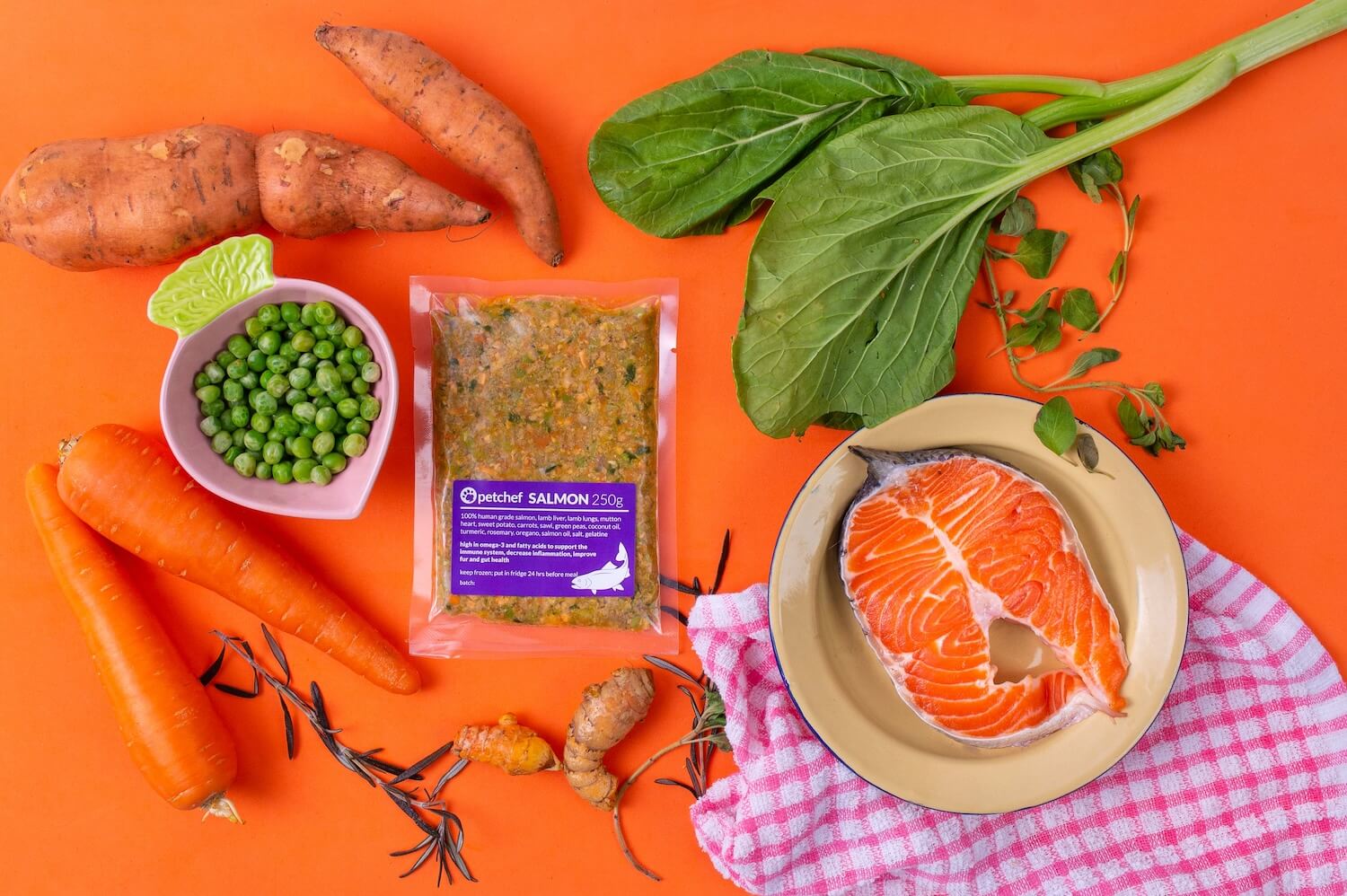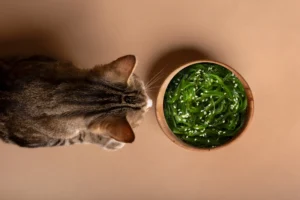Disclaimer: Always check with your vet on what “human foods” your dog can and cannot eat as information may vary based on their dietary needs and health conditions.
Whenever durian season rolls around, Malaysians and Southeast Asians unite over the love of durians along with our furkids in the car porch. While the internet says that dogs are commonly put off by the smell of durian, we’ve seen our fair share of videos where dogs are enjoying durian as well!
Read on to learn more about whether dogs should be eating durians, how much can they be eating and more.
Table of Contents
Do dogs like durian?
Your dogs reactions to durian can vary widely, depending on their individual preferences and tolerance for the fruit’s strong smell and taste:
- Avoid it: the strong odor may make them steer clear of it altogether.
- Show curiosity: some dogs may be curious and try to sniff it out of interest, especially if it’s in an area they’re familiar with.
- Try it out of curiosity: in rare cases, a dog may taste the fruit, but this doesn’t mean it’s safe or healthy for them.
Is durian safe for dogs?
If your dog sneaked a small bite, fret not because durian is technically safe for dogs in small amounts. When just given the flesh (without seeds or additives), it can be an occasional treat if they really like it, though still highly discouraged.
Is durian bad for dogs?
Durian is not considered safe for dogs. While durian is not toxic to dogs, it is not recommended for several reasons:
High fat content
Durian is rich in fats, which can be difficult for dogs to digest. Consuming too much can lead to upset stomachs, diarrhoea, or even pancreatitis (inflammation of the pancreas), especially in dogs with sensitive stomachs.
Strong odor
The strong, pungent smell of durian may also be unpleasant for dogs and could make them uncomfortable.
Sugar content
Durian contains high levels of natural sugars, which may not be suitable for dogs, especially those with weight management issues, diabetes, or other health concerns.
Seeds
The large, hard seeds in durian could pose a choking hazard or cause intestinal blockages if swallowed.
Which is why at Petchef, we ensure that all the ingredients that go into our dog food recipes are made of fresh, clean ingredients only! All the meals tailored for dogs contain:
50%+ meat (chicken, buffalo, beef, salmon, tuna, duck, etc)
45%+ vegetables and broth for additional nutrients
3.5% herbs and oils
It’s completely free of preservatives, additives, fillers and grains! If you’d love for your dog to eat the food they were born to eat, come have a chat with our friendly pet nutritionist to find the ideal meal for your pet
In general, it’s safer to stick to dog-friendly fruits like apples (without seeds), bananas, or blueberries. If you ever want to treat your dog to something new, it’s best to consult with a veterinarian to ensure it’s safe for them.
How much durian can a dog eat?
If you decide to give your dog a very small piece of durian as a treat (for example, a bite-size piece, no bigger than a teaspoon), it should not be harmful in the short term.
However, even in small amounts, the high fat and sugar content can lead to digestive upset, especially if consumed in excess.
How to tell when a dog has had too much durian?
If your dog has eaten too much durian (or fruit), they may show some digestive symptoms or other signs of discomfort. Here’s what to watch for:
- Vomiting: this is a common reaction if the dog has eaten something their stomach cannot handle. If your dog starts vomiting after eating durian, it’s a clear sign that their system is rejecting it.
- Diarrhoea: due to the high-fat content, durian can cause gastrointestinal upset, leading to diarrhoea. This is especially common if your dog eats too much.
- Bloating or gas: durian is rich in fiber and can cause bloating, gassiness, or a distended abdomen in some dogs, especially if they are not used to high-fiber foods.
- Lethargy: if your dog seems unusually tired, sluggish, or disinterested in their usual activities after eating durian, it could be a sign that they’re feeling unwell or uncomfortable.
- Loss of appetite: if your dog refuses to eat their regular food after consuming durian, it could be due to stomach discomfort or upset.
- Abdominal pain: if your dog is having trouble passing gas, or is excessively licking or biting at their stomach, it may indicate stomach discomfort or pain.
If your dog shows any of these signs, keep them hydrated and avoid offering any more fruit or treats for a day or two. If symptoms are severe or don’t resolve within 24 hours, it’s best to consult your vet for advice.
How often can dogs eat durian?
It’s best to avoid giving your dog durian altogether, as it is not an ideal food for their digestive system. While a small, occasional piece might not cause immediate harm, durian should not be a regular part of your dog’s diet.
If you do decide to give your dog a small amount of durian as a treat, it should only be on rare occasions and in very limited quantities. Even in small amounts, durian’s high fat, sugar, and fiber content can lead to stomach upset, diarrhoea, or more serious digestive issues over time if consumed too frequently.
Here are some general guidelines:
Rare treat only
Offer durian as an occasional treat, perhaps once a month or even less frequently. Keep the portion size small (a teaspoon for small dogs, a tablespoon for larger dogs).
Monitor for symptoms
If you give your dog durian, always observe them for any signs of digestive discomfort (vomiting, diarrhoea, bloating, lethargy).
To ensure your dog stays healthy and their diet remains balanced, it’s safer to stick with dog-friendly fruits and treats, such as apples, carrots, or blueberries, rather than making durian a part of their regular routine. Always consult your vet before introducing any new food to your dog’s diet, especially something as rich as durian.
How to feed your dog durian?
If you decide to feed your dog durian, despite the risks, it’s important to do so in a way that minimizes any potential harm. However, it’s not recommended as durian is not a typical or healthy treat for dogs. If you still want to give it a try, here are some guidelines:
For healthier and safer options, consider giving your dog fruits that are more commonly accepted and easier on their digestive systems, such as apples (without seeds), bananas, or blueberries.
Ultimately, feeding durian to dogs is best avoided due to its high fat, sugar, and fiber content, which can lead to digestive issues or discomfort for your pet.











